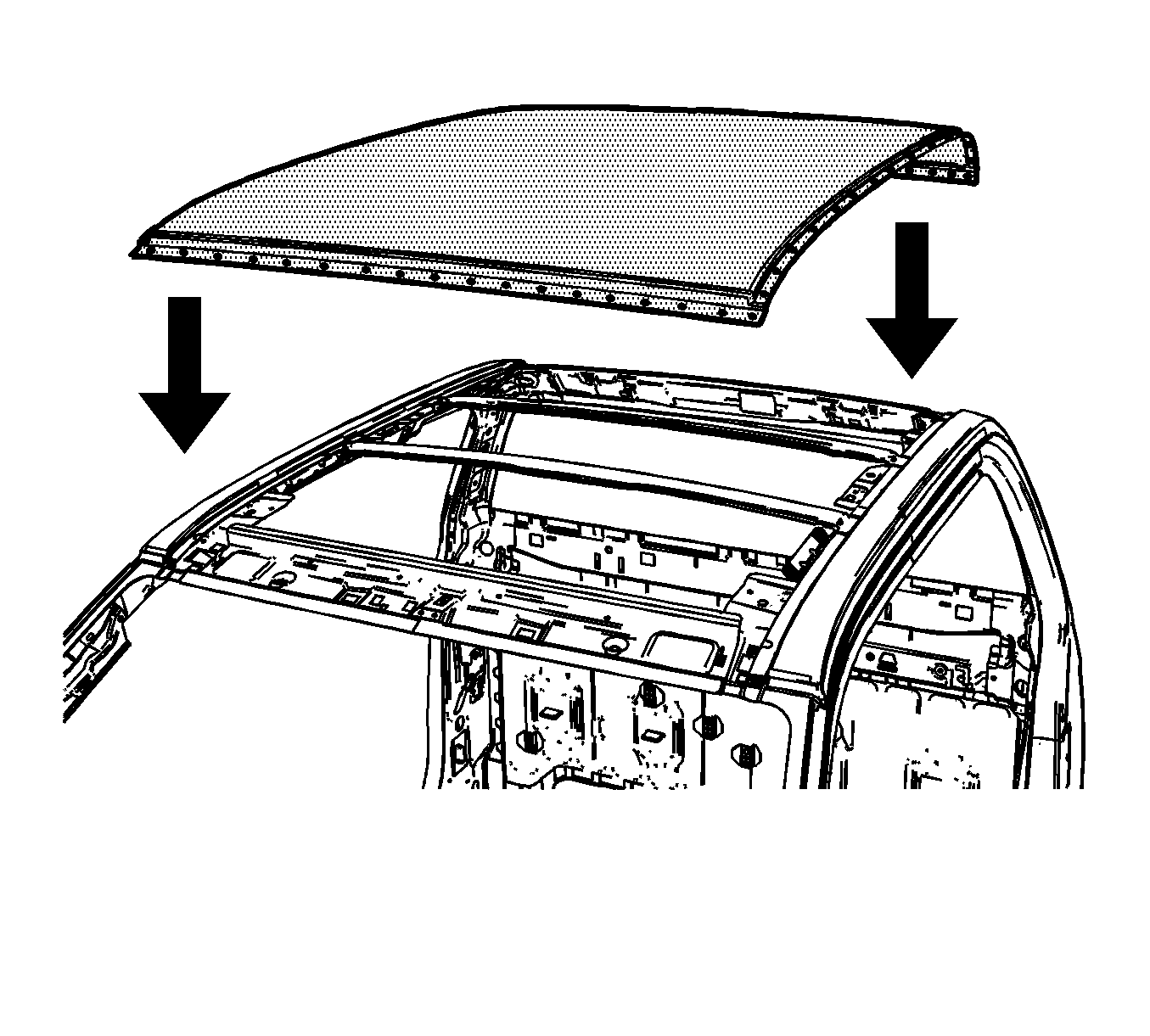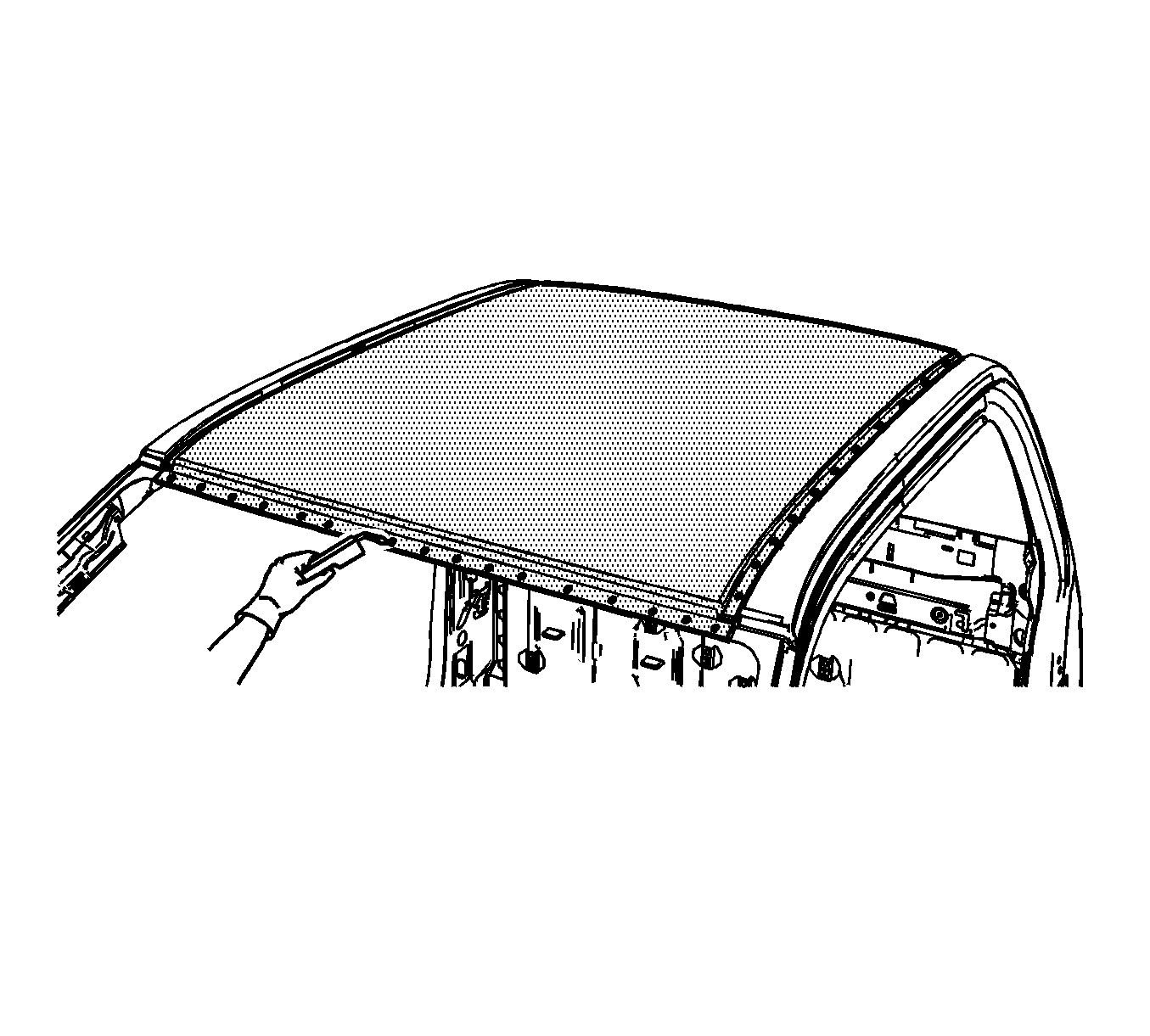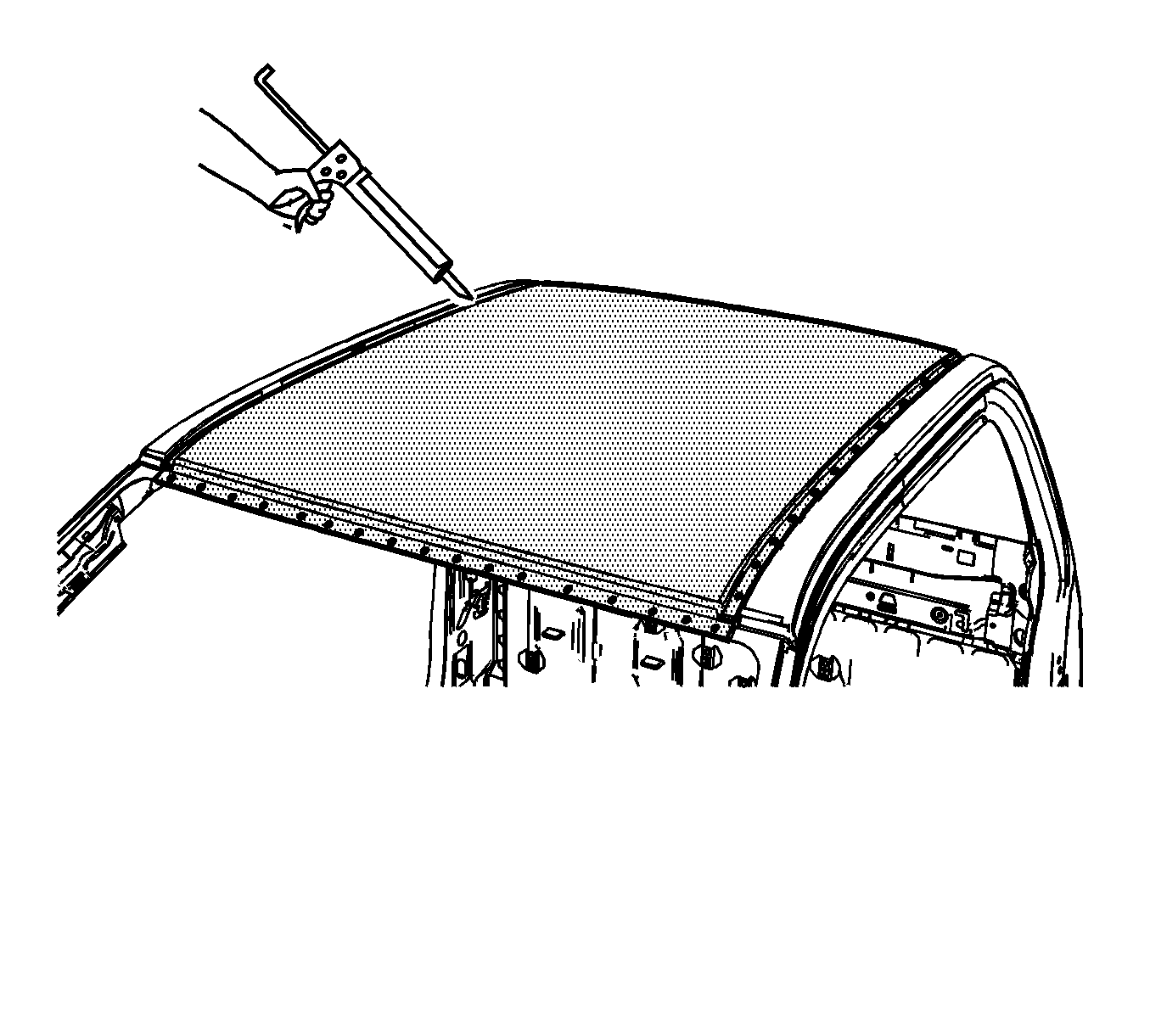Roof Outer Panel Replacement H3
Removal Procedure
Warning: Refer to Approved Equipment for Collision Repair Warning in the Preface section.
- Disable the SIR system. Refer to SIR Disabling and Enabling.
- Disconnect the negative battery cable. Refer to Battery Negative Cable Disconnection and Connection.
- Remove all related panels and components.
- Restore as much of the damage as possible to factory specifications.
- Note the location and remove the sealers and anti-corrosion materials from the repair area, as necessary. Refer to Anti-Corrosion Treatment and Repair.
- Locate and drill out all factory welds. Note the number and location of the welds for installation of the roof panel.
- Remove the damaged roof panel.
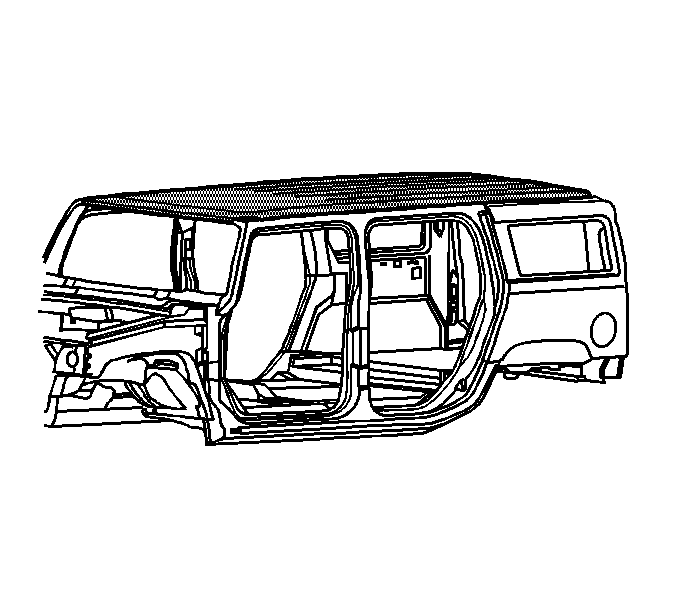
Warning: Refer to Foam Sound Deadeners Warning in the Preface section.
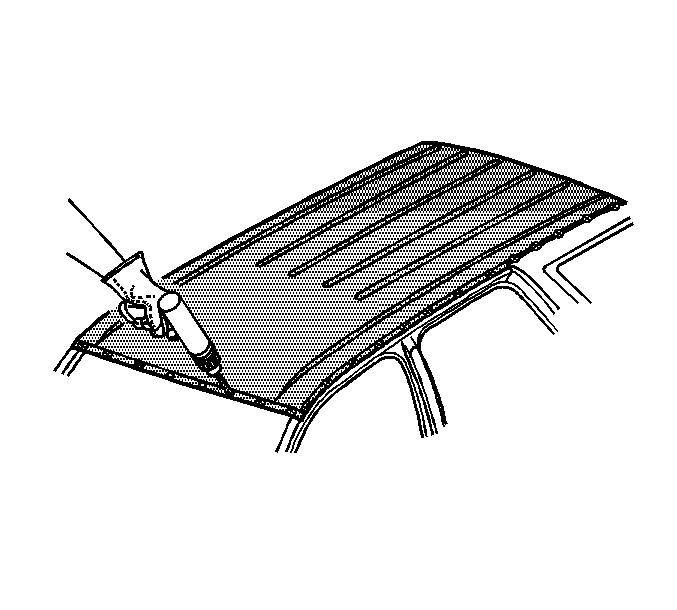
Note: Do not damage any inner panels or reinforcements.
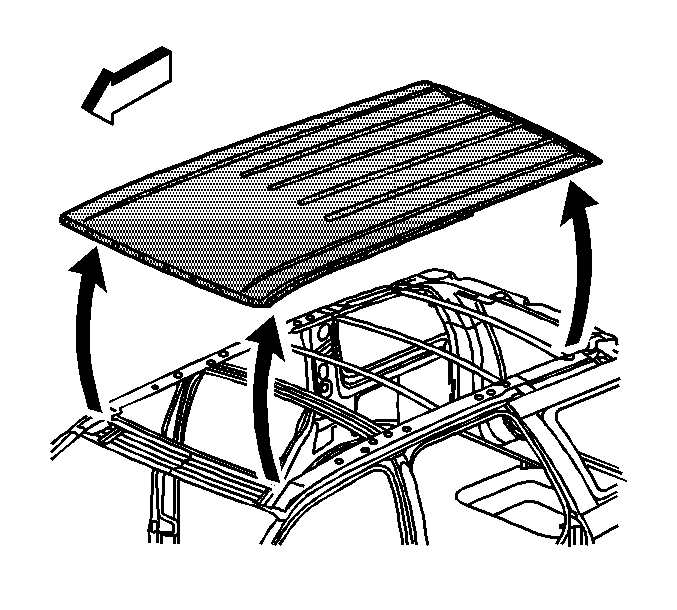
Installation Procedure
- Drill 8 mm (5/16 in) plug weld holes in the service part as necessary in the locations noted from the original panel.
- Prepare all attachment surfaces as necessary.
- Apply GM-approved weld-thru coating or equivalent to all mating surfaces. Refer to Anti-Corrosion Treatment and Repair.
- Position the roof panel.
- Plug weld accordingly.
- Clean and prepare all welded surfaces.
- Apply the sealers and anti-corrosion materials to the repair area, as necessary. Refer to Anti-Corrosion Treatment and Repair.
- Paint the repair area. Refer to Basecoat/Clearcoat Paint Systems.
- Install all related panels and components.
- Connect the negative battery cable. Refer to Battery Negative Cable Disconnection and Connection.
- Enable the SIR system. Refer to SIR Disabling and Enabling.
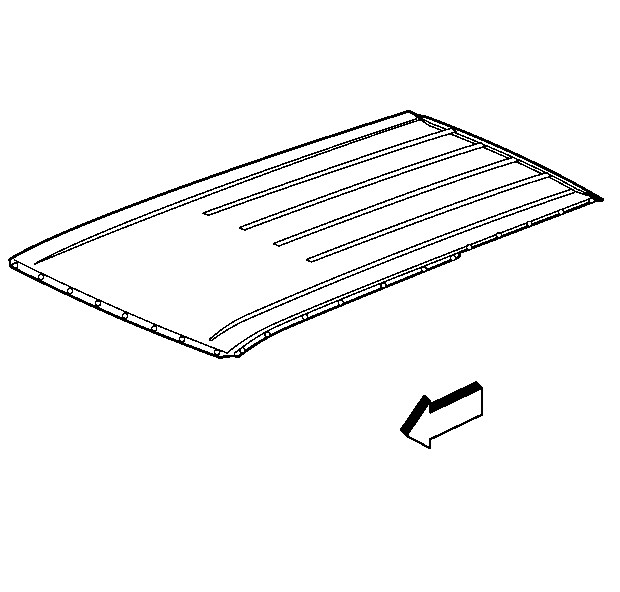
Note: In any area damaged beyond recognition, or structural weld-thru adhesive was present, space the plug weld holes 40 mm (1.5 in) apart.
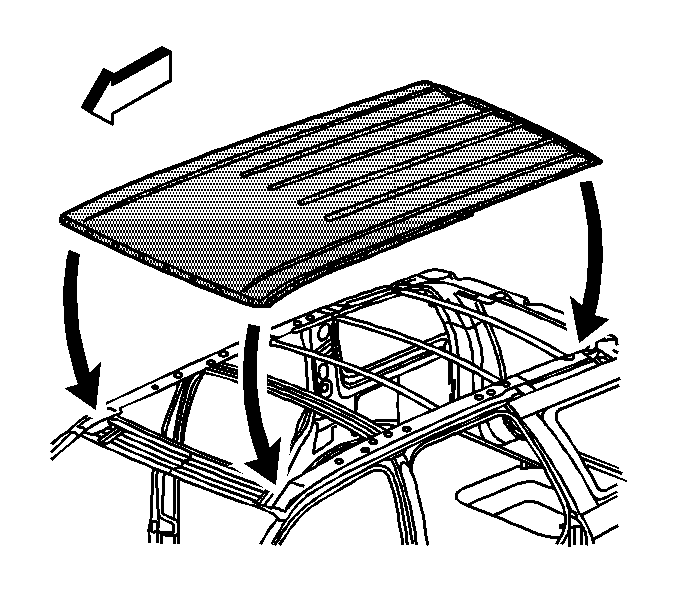
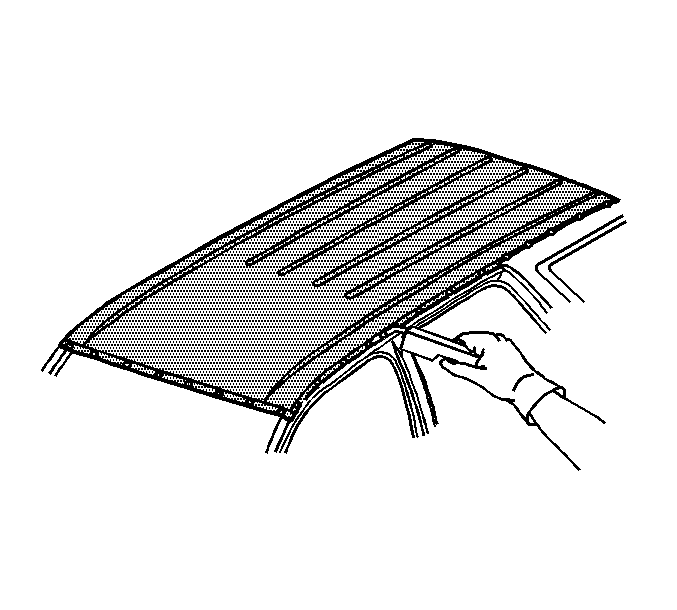
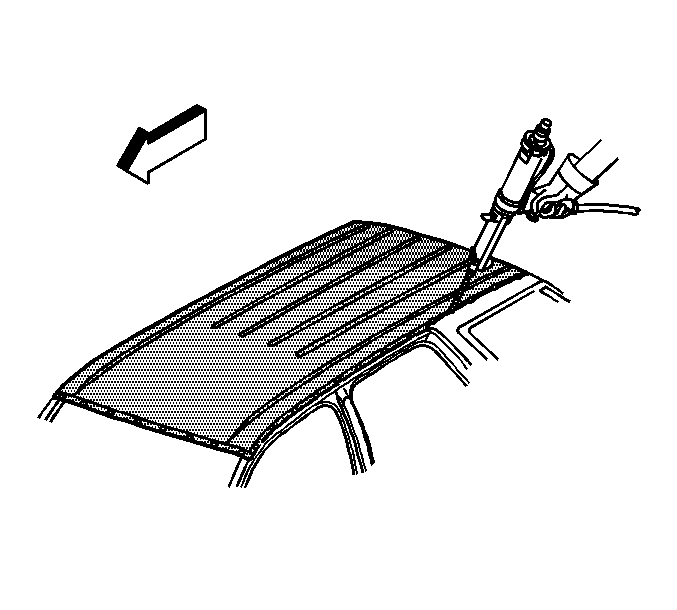
Roof Outer Panel Replacement H3T
Removal Procedure
- Disable the SIR system. Refer to SIR Disabling and Enabling.
- Disconnect the negative battery cable. Refer to Battery Negative Cable Disconnection and Connection.
- Remove all related panels and components.
- Repair as much of the damage as possible, to factory specifications. Refer to Dimensions - Body.
- Note the location, and remove the sealers and anti-corrosion materials from the repair area, as necessary. Refer to Anti-Corrosion Treatment and Repair.
- Remove the windshield. Refer to Windshield Replacement.
- Remove the rear window. Refer to Rear Window Replacement.
- Locate and drill out all factory welds. Note the number and location of welds for installation of the roof panel.
- With an assistant remove the roof panel.
Warning: Refer to Approved Equipment for Collision Repair Warning in the Preface section.
Note: When replacing panels that involve servicing of stationary windows, refer to Adhesive Installation of Stationary Windows , before performing any priming or refinishing.
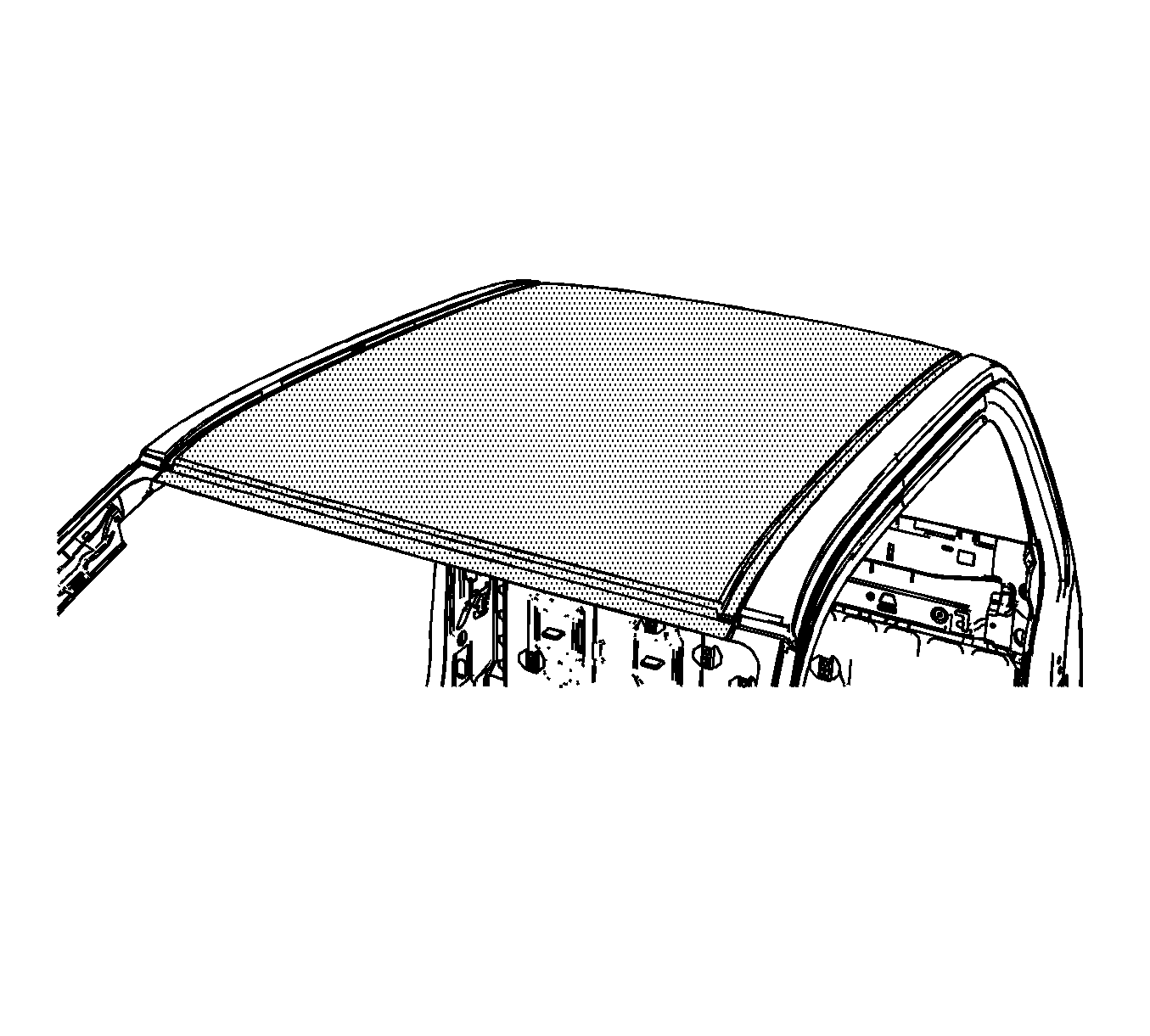
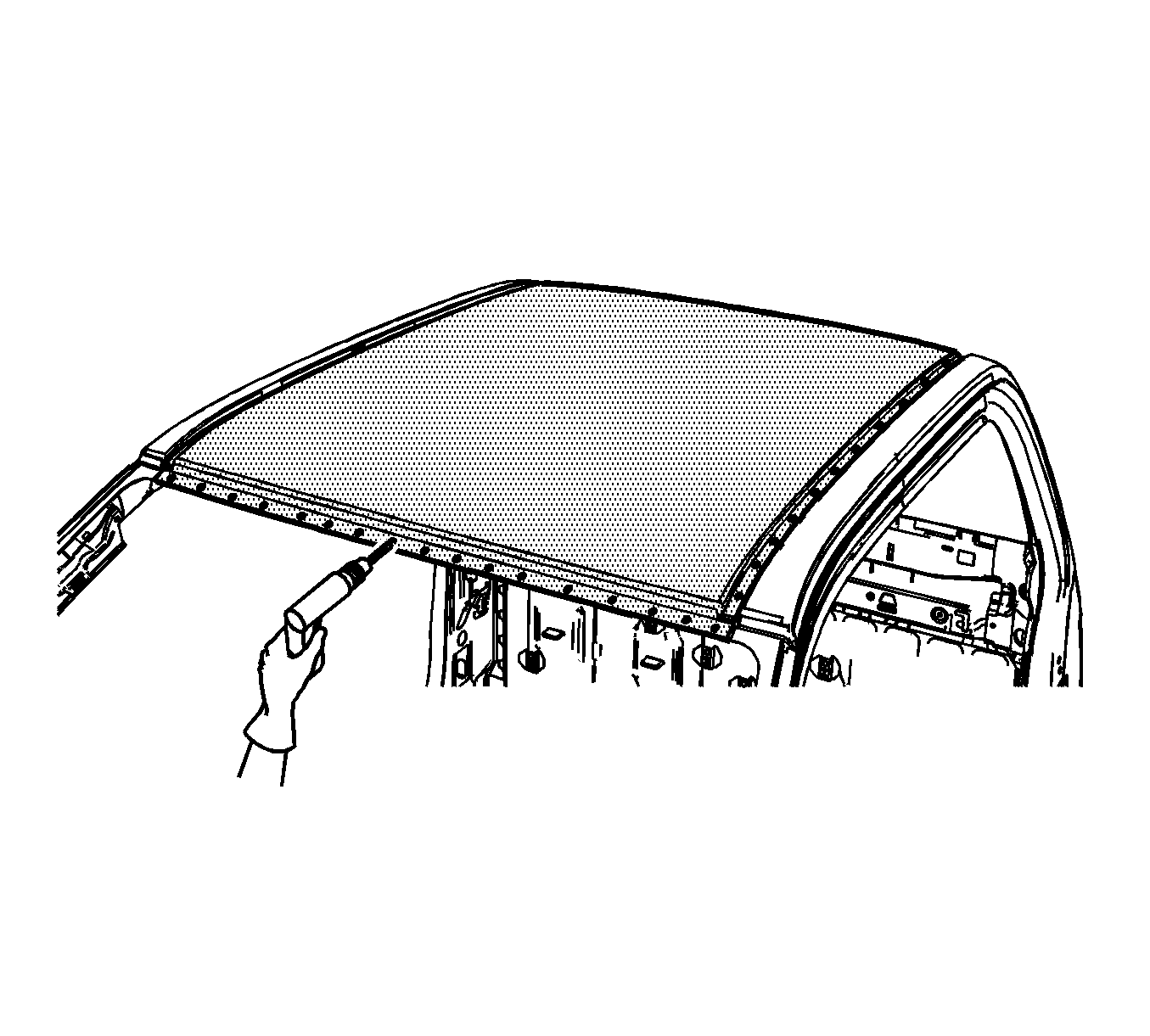
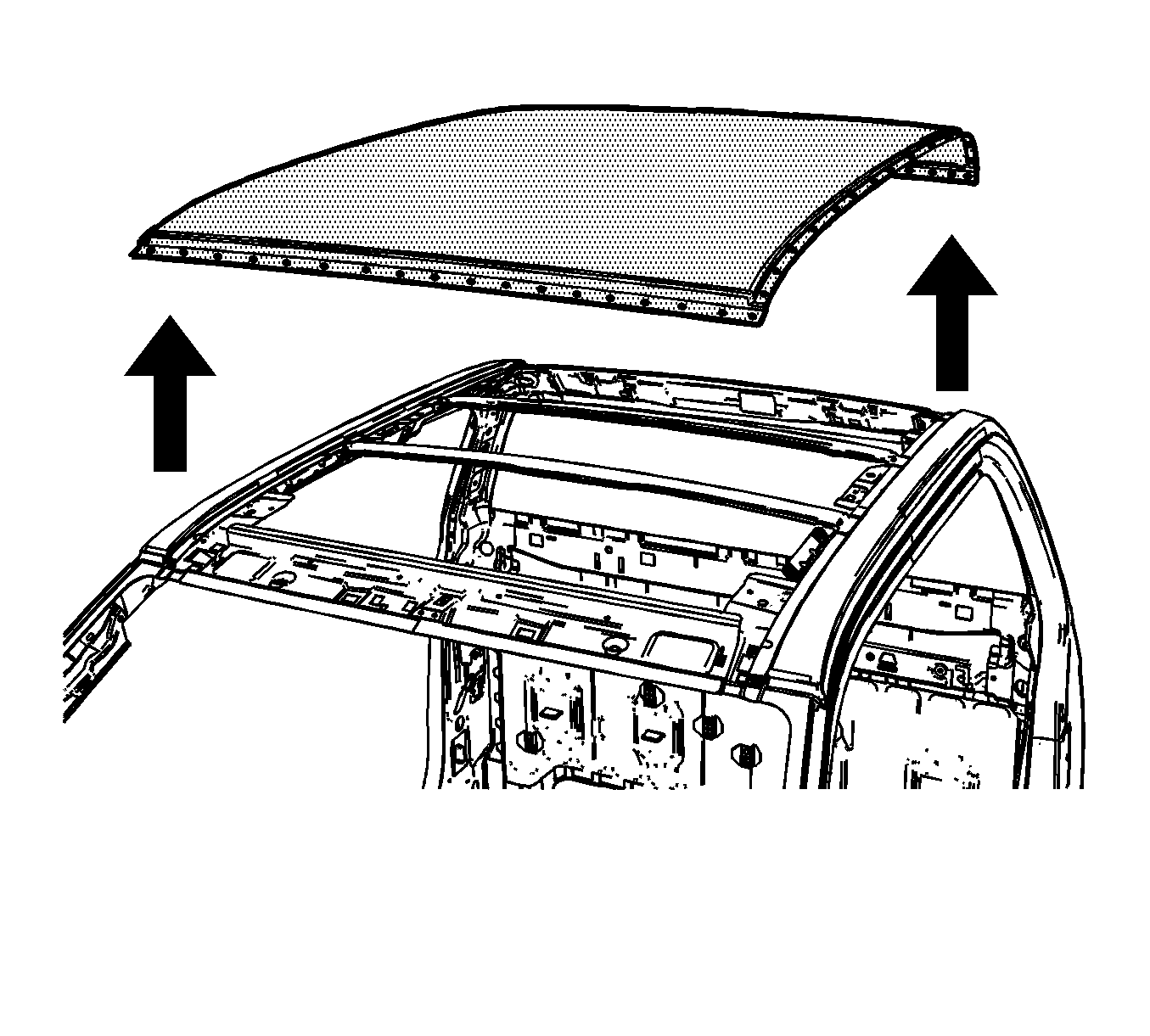
Installation Procedure
- Drill 8 mm (5/16 in) plug weld holes, as necessary, in locations noted from the original panel.
- Prepare all mating surfaces, as necessary.
- Apply GM-approved Weld-Thru coating or equivalent to all mating surfaces. Refer to Anti-Corrosion Treatment and Repair.
- With the aid of an assistant, position the roof panel to the body.
- Plug weld accordingly.
- Clean and prepare all welded surfaces.
- Apply the sealers and anti-corrosion materials to the repair area, as necessary. Refer to Anti-Corrosion Treatment and Repair.
- Paint the repair area. Refer to Basecoat/Clearcoat Paint Systems.
- Install the windshield. Refer to Windshield Replacement.
- Install the rear window. Refer to Rear Window Replacement.
- Install all related panels and components.
- Connect the negative battery cable. Refer to Battery Negative Cable Disconnection and Connection.
- Enable the SIR system. Refer to SIR Disabling and Enabling.
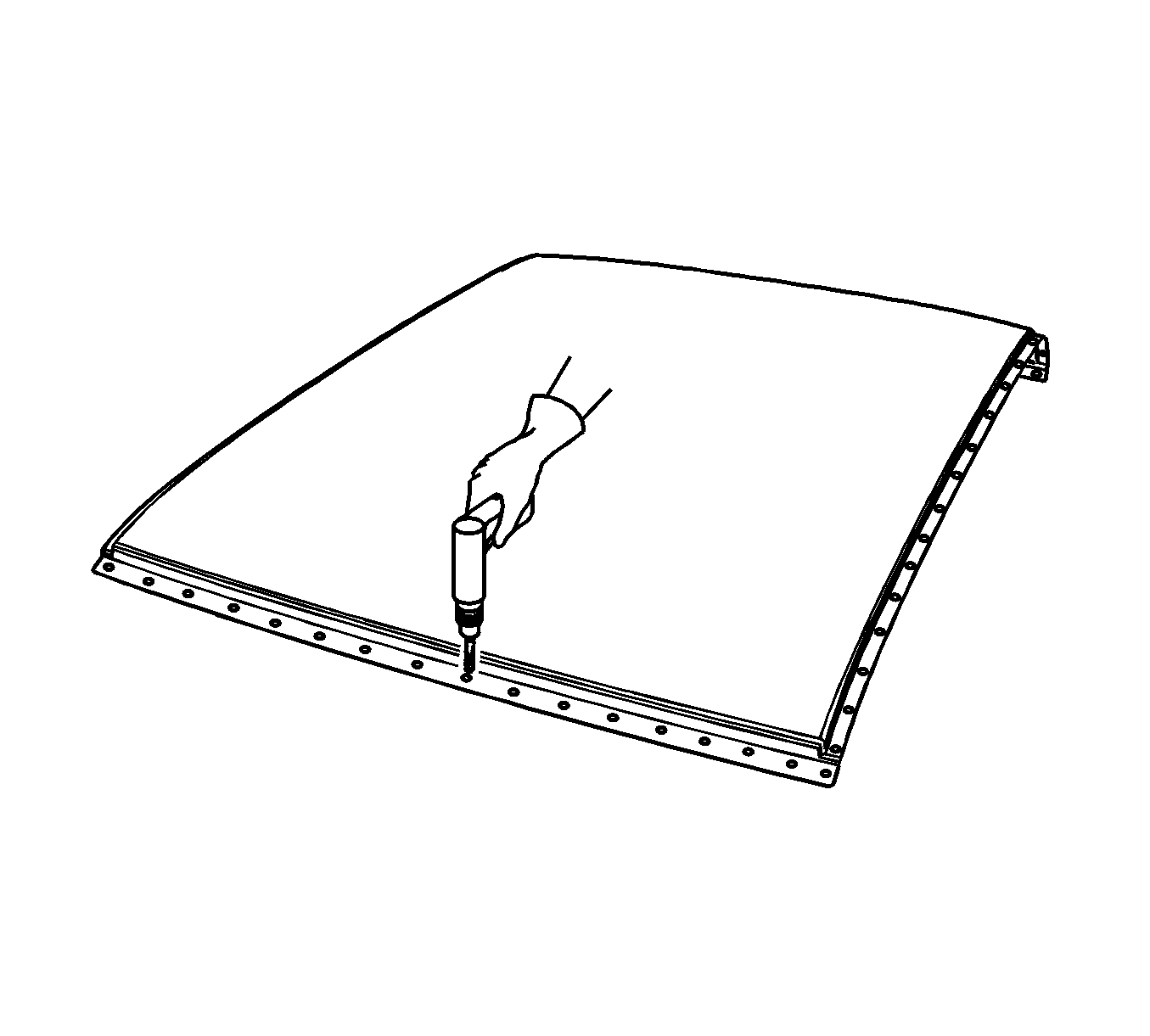
Note: If the location of the original plug weld holes can not be determined, or if structural weld-thru adhesive is present, space the plug weld holes every 40 mm (1½ in) apart.
